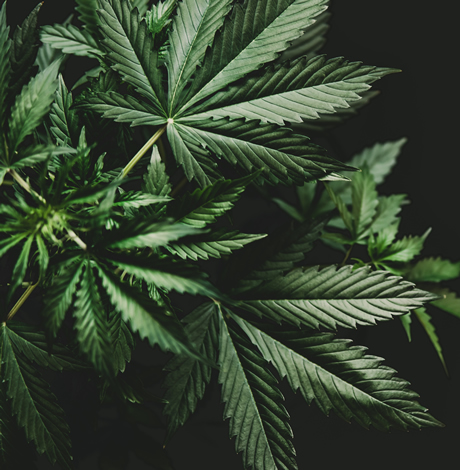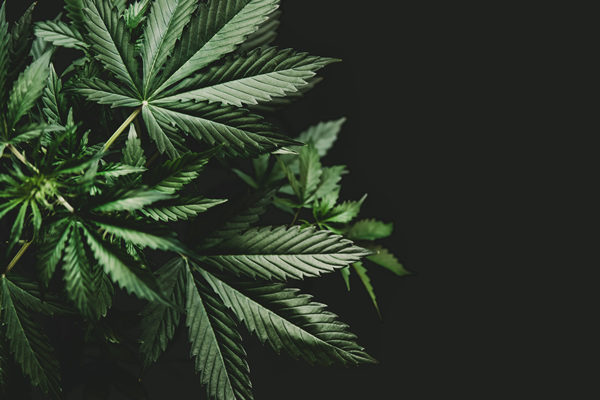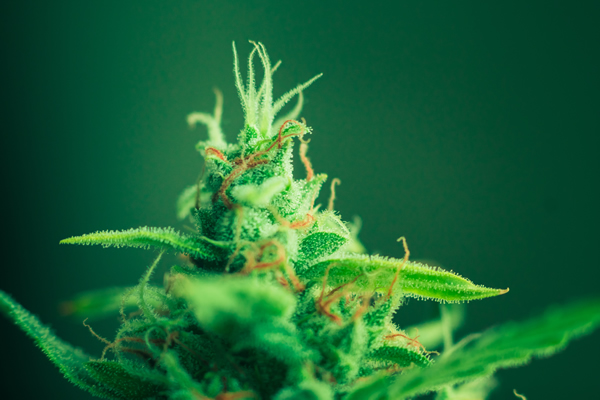Cannabis Culture
Cannabis Culture
1 in 7 Americans uses CBD products: poll


1 in 7 Americans uses CBD products: poll
PRINCETON, N.J. — An estimated one in seven U.S. adults acknowledges using CBD-infused products, according to national polling data compiled by Gallup.
Fourteen percent of Americans say that they utilize CBD. Use is most prevalent among those between the ages of 18 to 29.
Those consuming CBD products were most likely to report using them for pain (40 percent), anxiety (20 percent), or insomnia (11 percent).
In December, Congress enacted legislation removing industrial hemp (defined as cannabis containing less than 0.3 percent THC) and products containing cannabinoids derived from hemp from the federal Controlled Substances Act. However, regulators at the US Food and Drug Administration have taken the position that such products cannot legally be marketed as either medicines, food additives, or health supplements. The agency has established a working group to address the issue, but has cautioned that regulations may not be forthcoming for some time.
DEA promises progress on federal cultivation applications
The U.S. Drug Enforcement Administration has once again pledged to take action to better facilitate clinical cannabis research.
According to the agency’s filing in the Federal Register, the DEA “intends to promulgate regulations” to evaluate several dozen applications before it from private entities that wish to cultivate cannabis for FDA-approved research. However, this is not the first time the agency has made such a promise. In 2016, the DEA similarly announced the adoption of new rules to expand to supply of research-grade cannabis, but failed to take any further action.
“For the past three years, the DEA has failed to take any steps to follow through on its promise to facilitate clinical cannabis research, and today’s announcement makes it clear that this foot-dragging will continue,” NORML Executive Director Erik Altieri said. “According to the DEA’s filing, the agency has yet to even evaluate even one of the dozens of applications before it – many of which have been pending for more than two years, nor do they provide any timetable regarding when or if they ever will. In an era where public and scientific interest in the cannabis plant, particularly with regard to its therapeutic properties, has never been greater, and where patients in a majority of states are already using cannabis in compliance with state law, it is inexcusable that the DEA continues to take this ‘head-in-the-sand’ approach to this rapidly changing cultural and legal landscape.”
In June, one of the applicants seeking a DEA cultivation license – the Scottsdale Research Institute – filed a petition in the U.S. Court of Appeals for the District of Columbia seeking a writ of mandamus to order the DEA to comply with its 2016 policy, arguing that the agency has engaged in unreasonable delays. On July 29, the Appellate Court ordered the DEA to provide a written response to the filing within 30 days.
Since 1968, only the University of Mississippi has been federally licensed to engage in the growing of cannabis for FDA-approved clinical research. Scientists familiar with the product have consistently said that it is of inferior quality and fails to accurately reflect the types of marijuana varieties commercially available in legal states. Further, the University only provides scientists with the option to access herbal cigarette formulations of the plant, not concentrates, edibles, or extracts. Strains high in the compound cannabidiol (CBD) – a chemical of particular interest to many scientists – are also not currently available from the University.
Ill. guv signs medical cannabis expansion law
kSPRINGFIELD, Ill. — Democratic Gov. J.B. Pritzer signed legislation into law expanding the pool of qualifying patients eligible for medical cannabis therapy.
Senate Bill 2023, which took effect upon signing, permits physicians to recommend medical cannabis for patients diagnosed with autism, chronic pain, irritable bowel syndrome, migraine, osteoarthritis, ulcerative colitis, and several other conditions. It also permits physician assistants and registered nurses to issue cannabis recommendations.
The governor also signed separate legislation into law (aka Ashley’s Law) mandating school districts to permit “a school nurse … to administer a medical cannabis infused product to a student who is a registered qualifying patient while on school premises.” The new law takes effect on Jan. 1, 2020.
Cannabis Culture news in the Blade is provided in partnership with NORML. Visit norml.org for more information.

Democratic Gov. Michelle Lujan Grisham earlier this month signed two separate measures into law amending the state’s marijuana policies. The first measure (House Bill 2) legalizes and regulates marijuana possession, production, and sales for adults. The second measure (Senate Bill 2) facilitates the automatic review and expungement of the records of those convicted of low-level marijuana offenses.
Lawmakers approved both bills during a special legislative session demanded by Gov. Lujan Grisham, who had been a vocal proponent of the reforms.
NORML State Policies Manager Carly Wolf said: “This is a day to celebrate! New Mexico will greatly benefit from this new revenue stream and the creation of thousands of jobs. Most notably though, legalization will spare thousands of otherwise law-abiding residents from arrest and a criminal record, and the state’s new expungement law will help provide relief to many who are suffering from the stigma and other collateral consequences associated with a prior marijuana conviction.”
The adult-use measure (House Bill 2) permits those ages 21 and older to legally purchase up to two ounces of marijuana and/or up to 16 grams of cannabis extract from licensed retailers. It also permits adults to home-cultivate up to six mature plants for their own personal use. Retail sales would begin by April 2022.
The expungement measure (Senate Bill 2) stipulates that those with past convictions for offenses made legal under this act are eligible for automatic expungement of their records. Those currently incarcerated for such offenses are eligible for a dismissal of their sentence. It’s estimated that over 150,000 New Mexico residents are eligible for automatic expungement under this measure, according to the Department of Public Safety.
Cannabis Culture news in the Blade is provided in partnership with NORML. Visit norml.org for more information.
Cannabis Culture
Delaware cannabis activists take on corporate marijuana
Criticism from medical marijuana operators claimed that HB150 offers too many cultivation and retail licenses

As the country moves forward with sweeping changes in cannabis policy reform, locals in Delaware are tangling with corporate, multi-state medical marijuana permit holders to pass a bill for full legalization.
Adult-use activists and registered medical patients were stunned to hear opposing testimony from Delaware’s medical marijuana operators. Patients already deal with limited access and costly products. Now, many see the established industry voicing opposition as simply obstructing the progress of adult-use legislation. In response, some patients are now staging a boycott of the regulated dispensaries.
During the first committee hearing for HB150, Delaware’s adult-use bill, four of the state’s six currently licensed, multi-million dollar medical cannabis facilities offered negative testimony.
Zoë Patchell, executive director of Delaware CAN responded: “This market belongs to the long-time consumers, patients, and activists. We create the demand, we’ve been the ones driving the reform efforts, and we pay the prices at dispensaries. Cannabis is more than a market – cannabis is a community. These companies cannot reasonably fathom that we are going to purchase cannabis from any entity that has proven to put profits over patients. And now they seem willing to put consumers’ lives and freedom at risk just to hold out for an unfair advantage in the industry.”
These included publicly traded Columbia Care, “Fresh Delaware” aka CCRI, CannTech Research Inc., and the owner of EZY Venture aka “The Farm.”
They all went on record condemning HB150, and pushing a false narrative about oversupply. The core demand from the permit cartel was some protection for their private business interests with guaranteed adult-use licenses.
Criticism from the medical marijuana operators claimed that HB150 offers too many new cultivation and retail licenses, underlined by deep yet unfounded fears that the new competition would put their companies out of business.
Patchell noted, “We are not going to sit back while multi-state corporate entities, that already monopolize East Coast medical markets, work to undermine our social equity and micro-license provisions.”
Cannabis Culture news in the Blade is provided in partnership with NORML. Visit norml.org for more information.
Cannabis Culture
Virginia marijuana legalization takes effect July 1
Adult possession of cannabis up to one ounce without penalty

Following legislative approval of Democratic Gov. Ralph Northam’s amendments to Senate Bill 1406 and House Bill 2312, Virginia became the first southern state to legalize the possession and use of marijuana by adults.
Senate Bill 1406, introduced by Sen. Adam Ebbin (D-30) and Senate President Pro Tempore Senator Louise Lucas (D-18), and House Bill 2312, patroned by House Majority Leader Delegate Charniele Herring (D-46), establish a statutory timeline for the legalization of the commercial marijuana market in Virginia. The measure also permits for the personal possession and cultivation of cannabis by those ages 21 or older.
Last week, Gov. Northam recommended changes to the legislation to permit the personal use provisions of the law to take effect on July 1, 2021 rather than on January 1, 2024, the enactment date initially approved by lawmakers. A majority of the legislature concurred with that change.
Therefore, beginning July 1, 2021, adults will be permitted to possess up to one ounce of marijuana and to cultivate up to four cannabis plants per household without penalty.
The timeline by which state regulators have to enact provisions licensing commercial cannabis production and sales remains July 1, 2024.
Commenting on final passage, NORML Development Director Jenn Michelle Pedini, who also serves as executive director of Virginia NORML, said: “This is an incredible victory for Virginia. Legalization will bring an end to the thousands of low-level marijuana infractions occurring annually in the Commonwealth — ending a discriminatory practice that far too often targets Virginians who are young, poor, and people of color.”
Majority Leader Charniele Herring added: “It is a huge day for equity in the Commonwealth. Virginia is now the first state in the South to legalize recreational marijuana use, and I am so proud to have been able to carry this monumental legislation.”
Sen. Ebbin said, “The passage of SB1406 caps off years of struggle to reform our broken and outdated marijuana laws and begins the deliberate steps to repeal the harms of the failed prohibition. I am thankful to NORML, the governor, and my colleagues for moving this 283 bill from inception to passage over the last four months, and look forward to continuing to partner with them to establish a regulated, equity focused, adult-use marketplace in the coming years.”
Newly released statewide polling data finds that 68 percent of registered voters in Virginia, including majorities of Democrats and Republicans, support legalizing marijuana for adults.
Additional amendments added by Gov. Northam will allow the sealing of records related to crimes involving the misdemeanor possession of marijuana with the intent to distribute. Those records will begin to be sealed starting on July 1, 2021. Separate legislation enacted in 2020 previously sealed records related to misdemeanor marijuana possession.
Records specific to the simple possession of marijuana and/or misdemeanor possession with intent to distribute records will be automatically expunged no later than 2025. Those with records specific to crimes involving the felony possession of marijuana with the intent to distribute may begin to petition the courts for an expounging of their records in 2025.
The bill also allows for the re-sentencing of individuals currently incarcerated for marijuana-related offenses. The measure permits those individuals to have a hearing before the court that originally sentenced them, with legal counsel provided for indigent individuals. However, this portion of the bill must be reenacted in 2022.
The legislation also establishes an independent agency, the Virginia Cannabis Control Authority, to oversee the establishment of regulations that will govern the adult-use market. This agency is set to convene this summer. The remainder of the 300-page bill, which details the regulatory and market structure and social equity provisions, is subject to a second review and vote by the Assembly next year.
Cannabis Culture news in the Blade is provided in partnership with NORML. Visit norml.org for more information.
-

 U.S. Supreme Court4 days ago
U.S. Supreme Court4 days agoSupreme Court upholds ACA rule that makes PrEP, other preventative care free
-

 U.S. Supreme Court4 days ago
U.S. Supreme Court4 days agoSupreme Court rules parents must have option to opt children out of LGBTQ-specific lessons
-

 Congress5 days ago
Congress5 days agoSenate parliamentarian orders removal of gender-affirming care ban from GOP reconciliation bill
-

 District of Columbia5 days ago
District of Columbia5 days agoMan sentenced to 15 years in prison for drug deal that killed two DC gay men










